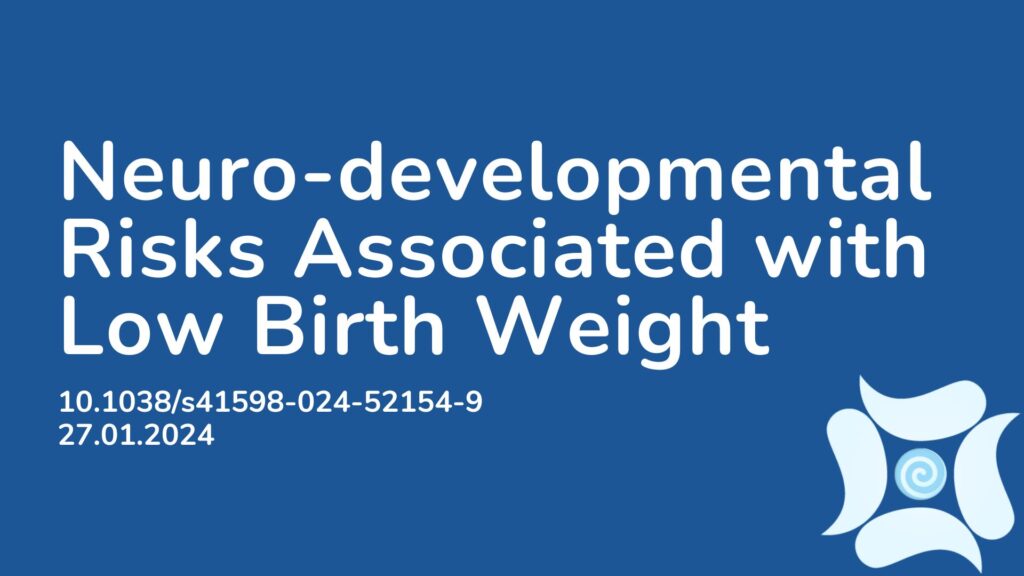Summary:
Birth weight is a significant indicator of infant well-being, with low birth weight (LBW) posing a notable concern worldwide, particularly in low- and middle-income nations. LBW, defined as infants weighing less than 2500 grams at birth, can result in both short and long-term health challenges, including neuro-developmental disorders such as attention deficit hyperactivity disorder (ADHD) and motor and cognitive impairments. While there are many contributing factors to LBW, premature birth and inadequate fetal growth are common risks. Understanding the developmental outcomes in LBW infants is pivotal for implementing early interventions and enhancing health results. This study aimed to assess how LBW impacts both short-term neonatal and long-term neuro-developmental outcomes in children aged 5-7 years. The study tracked women who gave birth at 37 weeks gestation or later between 2013 and 2015 in South Korea, monitoring their children’s neuro-developmental progress. Out of 830,806 women who delivered during this time, 31,700 (3.8%) of their babies weighed less than 2500 grams. It was found that children aged 5-7 years with LBW had a higher risk of various neuro-developmental disorders, including developmental delays, autism spectrum disorders, ADHD, and epileptic and febrile seizures, compared to those with normal or large birth weights. This study underscores how critical the understanding of birth weight is amongst mothers and the parent team.
Summary:
This study aimed to examine the impact of term LBW on short-term neonatal and long-term neurodevelopmental outcomes in children 5–7 years of age. This is a population-based cohort study that merged national data from the Korea National Health Insurance claims and National Health Screening Program for Infants and Children. The participants were women who gave birth at a gestational age of ≥ 37 weeks between 2013 and 2015 in the Republic of Korea, and were tracked during 2020 for the neurodevelopmental surveillance of their children. Among 830,806 women who gave birth during the study period, 31,700 (3.8%) of their babies weighed less than 2500 g. By Cox proportional hazard analysis, children aged 5–7 years who had LBW were associated with any developmental, motor developmental delay, cognitive developmental delay, autism spectrum, attention deficit hyperactivity disorders, and epileptic and febrile seizures.Children born with term LBW were more vulnerable to neurodevelopmental disorders at 5–7 years of age than those with normal and large birth weights. This study further substantiates counseling parents regarding the long-term outcomes of children being born underweight.
Article Publication Date: 27.01.2024
DOI: 10.1038/s41598-024-52154-9



